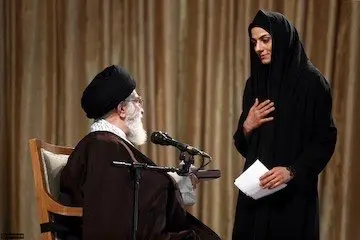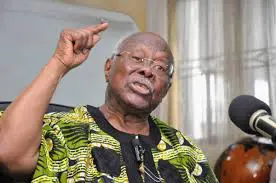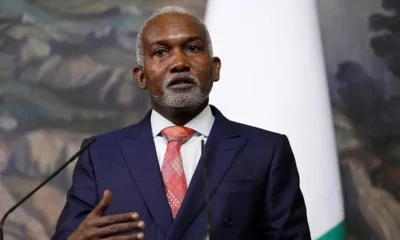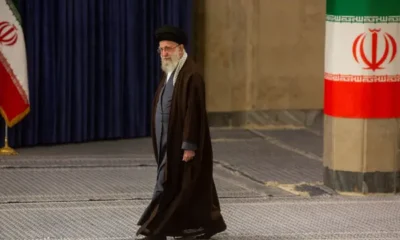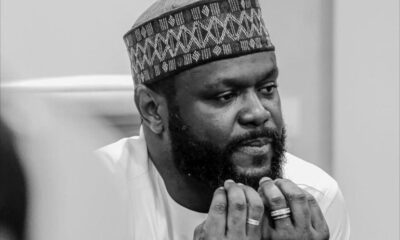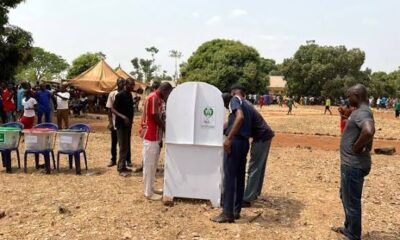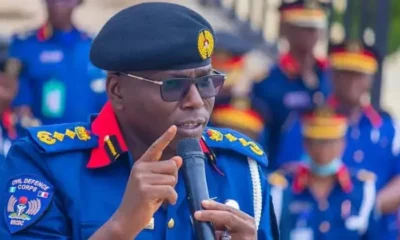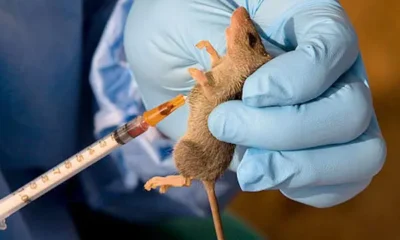Metro
My son’s drowning at beach highly suspicious – Mother of UNILAG 400-level student
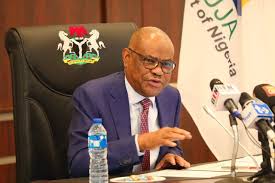
Elizabeth Abiola, the heartbroken mother of Oluwadamilola Balogun, an undergraduate, who drowned at Eleko Beach following a celebratory party marking his rise as president-elect of the Nigerian Universities Education Students Association (University of Lagos chapter), tells Grace Edema that the story of her son’s death is riddled with troubling inconsistencies and a web of unanswered questions that has left her family desperate for the truth
When was your son born?
Oluwadamilola was born on February 4, 1998. He was my first child and was 27 years old.
I learnt he had just become a president-elect
Yes, he was the newly elected president of the Nigerian Universities Education Students Association. They were sworn in on Wednesday, September 17, 2025, and went to collect items from the outgoing executives as part of the handover. He was about to begin the 400-level as president of the association.
What course was he studying?
Adult Education, Department of Adult Education.
How would you describe your son?
He was not troublesome. He was very gentle, respectful, hardworking, brilliant, and God-fearing.
Did you know anything about his visit to Bar Beach?
No, not at all.
How did you get to know about his death?
On Friday, September 19, 2025, I received a call from a female leader at the church he usually worshipped at outside school, Trinity Apostolic Church. The woman, fondly called ‘church mummy,’ said my attention was urgently needed at the church. I asked what the matter was, but she only insisted that I come immediately.
I tried calling Damilola to find out what was happening, but his number was not reachable. I then called his younger sister for his other number, but that too was unreachable.
While I was on my way to the church, my mother called to say our family head wanted me to reach him. When I did, he told me that some students from Damilola’s school had come to inform him that Damilola had gone to the beach to swim and did not return.
I told him to proceed to the school and that I would meet him there. After leaving the church, I went straight to the school, where the dean and lecturers narrated what they had heard. They told me that after the handover on Wednesday, the students left the school premises and went to Eleko Beach.
I said I needed to visit the police station to know the full details. So, our family head and I went to Eleko Police Station.
When we got there, we met two boys who had been detained. I asked one of them what happened, and he explained that after the handover, he suggested they have a get-together at Eleko Beach since he had an apartment nearby. They enjoyed themselves and even stayed till the following morning, though some of the boys had already left by then.
Damilola, however, said he wanted to wait for a girl named Rofia, someone he had met once before, to say goodbye. When she came, they took some pictures and videos together. Afterwards, Damilola said he wanted to play snooker again, which they did.
On their way back, they saw some locals playing football, and Damilola joined them. After the game, he insisted on going into the sea to bathe.
There were three of them at that point: Damilola and two others. Out of the 12 people who went there, only Damilola did not make it back alive.
The last person with Damilola, Kelvin, said Damilola had been carried away by the waves. After searching the area without success, they went to the police station to report the incident. That was how they ended up detained; they could not be released until the family arrived.
Does your son usually go to the beach?
No, he doesn’t, which is why I find it hard to believe he went there of his own free will.
What do you actually think of their story?
There are still questions these students need to answer. If they can provide clear and truthful explanations, I will accept it as God’s will, because He knows everything. But there are questions we have repeatedly asked that remain unanswered, leaving us without clarity.
We suspect he was lured to the beach and killed – Uncle
Late Damilola Balogun’s uncle, Mr Joseph Ayobami, told Grace Edema that when his nephew’s phone was examined, not a single picture or video indicated he had attended a party, a revelation that further deepens the mystery surrounding the circumstances of his death.
You talked about inconsistencies in the accounts given. Why?
There are glaring inconsistencies in the accounts given by the two people who were last seen with Damilola. I carefully recorded all that was said, identified his body, and personally examined it. I also have pictures and videos as evidence. Yet, there remain questions that must be answered to bring clarity to this heartbreaking incident. Dami’s death is a tremendous loss to us, but what makes the pain unbearable is not knowing the full truth of what really happened.
So, I want to know why they went to the beach in the first place. We were told that the school had explicitly warned that no student party should be held there, so why did they still decide to go?
Even if they wanted to unwind after the handover, as Peter explained, why choose the beach, knowing fully well that the school had forbidden it?
Then there is the matter of Rofia. Peter said Dami wanted to wait for a girl named Rofia, someone he had only met once. She is not a student of the school. According to Kelvin, she heard they were at the resort and told Dami to wait for her.
Why would Dami, who barely knew her, wait? And when she eventually arrived, she only met them briefly at the bar, took some pictures and videos, and then left. Why did she rush all the way from Ijebu-Ode just to take pictures?
Another issue is the locals Dami supposedly played football with. Peter said that after snooker, they saw some local people playing football, and Dami joined them. Who exactly were these people?
After the football, Dami allegedly said he wanted to swim, clean himself properly, and take pictures. He even gave Kelvin his phone to record him. But why, after all of that, did no one else go into the water? Why was it only Dami?
Then, there is the disturbing state in which he appeared in the videos. The last clip we saw, allegedly taken by Kelvin, showed Dami rushing in and out of the water. His speech and movements were uncoordinated, and he kept repeating something like, “I’m not the president,” while Kelvin laughed in the background.
His eyes and facial expressions looked unusual, and his behaviour did not seem normal. How could someone who had just played snooker and football appear intoxicated in such a way?
Finally, we want to know who actually tried to rescue Dami. Kelvin said he stopped recording and then turned back to see Dami struggling. He claimed he rushed to call someone nearby for help, but before that person could reach him, Dami had disappeared. Who was this person, and did they really witness Dami drowning? Apart from Kelvin and Dami, who else was present at that critical moment?
Are you suspecting anyone?
We are not accusing anyone of killing Dami. But for us to bear this loss and find some measure of peace, we need to be certain of every detail surrounding what happened. The students involved must come forward, clarify these doubts, and give truthful answers. Only then can we even begin to accept that this was an act of God and try to move on. Our only plea is this: we just want to be sure of what really happened.
When we went to the police station, we confronted Peter directly, asking him what had happened. The very questions I have raised came from his own account. But from his explanation, we noticed troubling inconsistencies, and that is what pushed us to demand answers.
The police allowed us to question him, but we were not given the chance to cross-examine him or challenge the gaps in his story.
Did you observe anything odd on Dami’s body?
When we went to identify and examine Dami’s body, I recorded the process myself. Afterwards, back at the police station, my sister broke down completely. She cried and shouted in grief, “They killed him. They took him there to kill him.”
The family objected to an autopsy. Why?
The officer in charge heard her and said that, because of such an allegation, the case would have to be escalated and referred to Panti in Yaba. Dami’s body, he explained, would be deposited at the morgue for an autopsy, and the two boys who had been detained would be transferred to Panti for further interrogation.
When we shared this with Dami’s father, our family head, and other relatives, the decision became even harder. The police insisted that the body must go for an autopsy.
But Dami’s father, heartbroken, said no. He said his son was only 27 years old and had already suffered too much. He could not bear the thought of his body being cut open and subjected to further pain. He insisted that they should bury him.
Even members of his church, Trinity, who came to the police station that day, stood by this decision.
After we explained everything, we had told the police and relayed Dami’s father’s wishes, they all agreed that the body should not undergo an autopsy. It should be laid to rest immediately.
So, we eventually agreed to bury him that same day. We explained our decision to the officer in charge, insisting that Dami was too young to go through the indignity of further procedures. But the officer told us plainly that if we insisted on burial, the body would not be released unless we formally agreed not to pursue any case against the two people in detention.
We were asked to submit written statements declaring we would not press charges. I wrote mine, and my sister also wrote one. It was only after submitting them that the police permitted us to proceed. The officer even accompanied us to the beach where Dami’s body was, saying he had already carried out his own investigation and examined the body and found nothing suspicious. That, he said, was the official conclusion of their inquiry.
They also explained that if we wanted further investigations, we would have to bear the entire cost ourselves, from transporting the body to the morgue to providing an ambulance, and covering every other related expense. That was the difficult position we were forced into.
Did you collect the corpse?
No. The body remained at the beach where he had been found. In the morning, after the examination, I bought a white cloth, and we wrapped him carefully. Two students stayed behind to watch over the body, ensuring nothing happened to him.
When we concluded at the police station, the policemen and everyone else returned with us to the beach. They liaised with the Baale (local chief) and the residents about burial arrangements. It was agreed that Dami had to be buried near that spot.
So, we made arrangements. We paid N50,000 to the community, N20,000 to those who would dig the grave, and rented a small shelter for N2,000. We also asked for contributions and raised about N40,000 more to cover additional expenses. After settling everyone, we laid him to rest.
How would you describe this loss?
It’s immense, that’s all I can say for now. We have not even fully felt the weight of it yet. Until the burial and all the formalities are completely behind us, the grief hasn’t fully hit.
At the beach, I cried, but I could not break down as I wanted. Too many urgent matters demanded that I remain strong and ensure everything was concluded. Even now, we don’t have all the answers to what happened. We are still in shock.
Dami was not just anybody. He was a bright young man, a promising student with his whole future ahead of him. He was my sister’s first child, her pride and joy, and that makes the pain even deeper, almost unbearable.
He was the eldest of five children, with four younger siblings: a set of twins, two other boys, and a girl. To his family, Dami was more than a big brother; he was a role model, the one they all looked up to.
From his writings and the way he lived, it was clear that Dami carried the heart of a leader and the vision of an educationist. He was passionate about knowledge and driven by a desire to make a difference in the world.
His ambitions were not self-centred; he wanted to impart wisdom, to touch lives, and to leave his mark as someone who inspired others.
What is your message to the government?
We just want clarity. These students are young, and sometimes they make poor decisions. We cannot hold the school solely responsible, because young people don’t always follow instructions. They are free to make choices, sometimes careless ones.
We are not accusing anyone of killing Dami, but those involved must ensure their stories are consistent. They need to answer our questions and clear the air so that everyone can have closure. We want everyone present on that day – Peter, Kelvin, Rofia, and others- to come forward.
Pictures and videos were taken at the bar and in the apartment while the students ate and relaxed. Yet when the family checked Dami’s phone at the police station, the only photos and videos they found were from the beach, showing him running in and out of the water.
It is hard to believe that no one has a single photo or video of the party or their activities on Wednesday at the resort. We want those who took pictures or videos to come forward. Let us see his last moments and understand exactly what happened before everything went wrong.
And what about Rofia, the girl Dami was said to have waited for? We didn’t see her or any other girl in those pictures. In fact, we didn’t see any evidence of the party at all.
We were told they arrived at the resort on Wednesday. The incident happened on Thursday, September 9, around 5:30 p.m.
According to Peter. They didn’t find him that day, so we reported the case. On Friday, when my sister and others arrived, they were told that in such cases, the water usually brings the body to shore after some time, so we should return on Saturday. It was early Saturday morning, around 12 a.m., that villagers finally sighted his body as the waves carried him back.”
(punch)
-

 World News12 hours ago
World News12 hours agoIran Confirms Supreme Leader’s Death As Attacks Continue
-

 Politics12 hours ago
Politics12 hours agoNigerians Are Hungry, Will Shock You In 2027 – Bode George Tells APC
-

 News12 hours ago
News12 hours agoFG Issues Advisory To Nigerians In Middle East
-

 World News12 hours ago
World News12 hours agoAyatollah Ali Khamenei: The Leader Who Shaped Iran’s Defiance
-

 Metro12 hours ago
Metro12 hours ago‘I won’t be bullied’ – Seyi Tinubu addresses VDM’s claim of secretly funding King Mitchy’s charity work
-

 Opinion11 hours ago
Opinion11 hours agoReflections on FCT polls and voter apathy
-

 News12 hours ago
News12 hours agoTinubu Renews Tenure Of Audi, NSCDC CG
-

 News12 hours ago
News12 hours agoLassa Fever Kills 10 Health Workers In Benue



